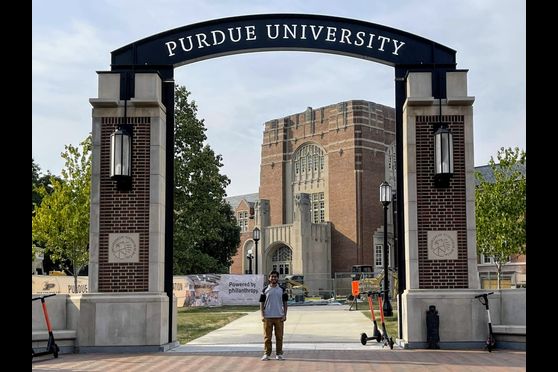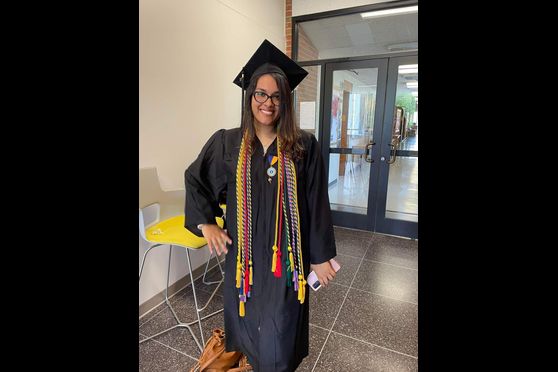Higher education in the US: Looking beyond rankings and brand names


“I want to study in an Ivy League college” or “I want to send my kid to an Ivy League college” — I have often heard students and their parents express this desire in my 20-plus years of experience as an EducationUSA adviser.
There are over 4,000 accredited colleges and universities in the US which offer associate (two-year programmes), bachelor’s (four-year programmes), master’s and PhD or doctoral degrees.
Every college/university is a “good fit” for some students, not all colleges and universities may be a “good fit” for all students. US colleges and universities keenly evaluate the student’s academic goals and performance, rather than just how prestigious their previous alma mater may be. There is a saying – for LORs (Letters of Recommendation), the content of a recommendation letter is more important than the designation of the recommender.
Hence, do not worry or feel that you are a weak applicant for competitive institutions in the US if you have not had been to a top-notch institution. Your application will be your multi-dimensional portrait presented to the admission committees. Such committee members are trained and experienced in selecting students who will be a “good fit” for their institution or department.
Similarly, however strong an applicant you may be or however reputable your prior/current educational institution may be, there are some external factors that play an important role in the admission decisions. For example, a professor at the university may be looking for a suitable research assistant for a new research programme and a student with similar research experience may win the race or a college may be looking for more international students on the campus and as an international applicant you may get an advantage over a domestic applicant.
If you applying for undergraduate studies, your priority factors may be different than those planning to pursue graduate (master’s/ PhD) studies. As a prospective undergraduate student, you may look at the size of the institution — for instance, you may prefer smaller colleges with small classrooms or a teacher-student ratio of less than 1:15; the faculty profile — fulltime faculty members or graduate teaching assistants, undergraduate research opportunities, cost and financial aid and location.
Graduate students may have different priorities. They must carefully review the quality of the department concerned; the department’s emphasis on a few specific areas of specialisation; suitable faculty members whose research work is aligned with the students’ interest; research resources such as lab facilities which may be important for STEM research; institution-industry tie-up for internship opportunity or practical training. Cost may not be a factor for PhD applicants as majority of them are fully funded. But it may be a core issue for master’s applicants as availability of financial aid is limited in master’s programmes.
Here are a few students who are/were successful in achieving their academic goals even though they chose lesser-known institutions for various levels of higher education:
Aarya Deb studied at Shri Krishna Mission School, Agartala, and then enrolled at Drexel University with a full tuition waiver for undergraduate studies. After one year, he shifted to Villanova University and completed his bachelor’s degree with outstanding performance and was awarded a gold medal. He was admitted to Purdue University to pursue a PhD degree in Fall 2021. Even though Aarya studied at a school in a small town, he was able to get into highly competitive institutions in the US.

Sayantan (Sunny) Mitra completed school education at Calcutta Boys’ School and pursued his bachelor’s degree with a double major in Economics and Mathematics at the College of Wooster, Ohio, a small liberal arts college, while being a Clinton Global Initiative University Fellow. With hard work and a strong academic performance, he was able to pursue research at Harvard University and was admitted to UC Berkeley for a PhD in Agricultural and Resource Economics. Currently, with funding from MIT, he is studying the effects of climate change on the global economy. He also serves as the first international trustee of his college.
Ayan Sengupta pursued his high school studies at Nava Nalanda High School, Kolkata, and then received a bachelor’s degree in Electronics Engineering from St. Thomas College of Engineering & Technology, Kolkata, (a private engineering college) under Maulana Abul Kalam Azad University of Technology (earlier West Bengal University of Technology). Ayan received admission offers from eight prominent universities. Of these, University of Nebraska, Lincoln, and University of Maryland, Baltimore County, provided full financial support to him in the form of Teaching Assistantship. He eventually pursued his Master’s in Computer Science at UN Lincoln where he was awarded the prestigious Chancellor's Fellowship in addition to the Graduate Assistantship.
Sagnik Dakshit pursued his BTech degree from the Calcutta Institute of Engineering & Management (a private engineering college), Kolkata, an affiliated college under WBUT. He was admitted to an integrated MS/PhD programme with full financial assistance at the University of Texas, Dallas.
Sohini Mukherjee, a student of Modern English Academy, Barrackpore, West Bengal, was admitted to Lycoming College, a small liberal arts college in Pennsylvania, about four years ago. Sohini bagged almost a full tuition waiver and also received the presidential award. Sohini successfully completed her bachelor’s degree this summer and already has admission offers with full aid from multiple universities to pursue PhD degree.

While choosing a college or university, the brand name and rankings cannot be your primary selection parameters. It is important to make a well-informed decision based on priorities that best fit your academic and professional needs. You may even speak with educational advisers, seniors, and academics, but ensure that you are at the centre of the decision-making process. After all you will be the pilot of your own flight and your own navigator!
Prospective students may reach out to United States India Educational Foundation (USIEF)-designated EducationUSA Advising Centres in India, official source of information on US higher education. (Website: www.usief.org.in)
The writer is EducationUSA Advising Coordinator, United States-India Educational Foundation (USIEF), Kolkata.